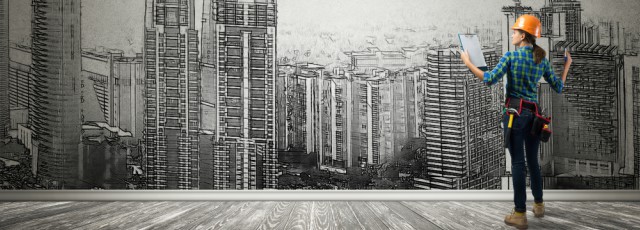10 real-life environmental engineer interview questions and answers
An Environmental Engineer applies scientific and engineering principles to protect and improve the environment. Their role encompasses designing systems for waste disposal, water and air pollution control, public health, and land reclamation. Environmental Engineers also conduct research to reduce environmental impact and to ensure compliance with environmental regulations.
These environmental engineer interview questions are directly sourced from real hiring managers and they are ready to use.
 Make sure that you are interviewing the best environmental engineer candidates. Sign up for Workable’s 15-day free trial to hire better, faster.
Make sure that you are interviewing the best environmental engineer candidates. Sign up for Workable’s 15-day free trial to hire better, faster.
10 good environmental engineer interview questions
- Can you discuss a project or coursework related to environmental engineering that you found particularly engaging or challenging?
- How did you first become interested in environmental engineering, and what motivates you to work in this industry?
- Can you share an example of a time when you demonstrated initiative in a project or work environment?
- Describe a situation where you had to solve a complex problem. What approach did you take, and what was the outcome?
- How do you approach collaboration and teamwork, especially in a multidisciplinary environment?
- Tell us about a time when you had to communicate a technical concept to a non-technical audience. How did you ensure your message was understood?
- Have you completed or are you in the process of obtaining your EIT license, and what steps have you taken towards this?
- Discuss a leadership experience you’ve had. What did you learn about your own leadership style?
- How do you manage your tasks and stay organized in a fast-paced work environment?
- What draws you to our company, and how do you see yourself contributing to our team and company culture?
Here are 10 real-life interview questions with sample answers, based on hiring managers’ notes, to help you identify the best candidates for this role.
1. Can you discuss a project or coursework related to environmental engineering that you found particularly engaging or challenging?
Evaluates the candidate’s academic background and how they handle challenges.
Sample answer:
“In my senior year, I worked on an urban water management project. Balancing the environmental impact with urban development constraints was challenging but fulfilling. This project enhanced my problem-solving skills and deepened my commitment to sustainable solutions.”
2. How did you first become interested in environmental engineering, and what motivates you to work in this industry?
Aims to understand the candidate’s passion and motivation for the field.
Sample answer:
“My interest in environmental engineering sparked during a high school field trip to a local wastewater treatment plant. I was fascinated by how engineering could significantly reduce environmental impact. I’m motivated by the prospect of developing sustainable and innovative solutions for environmental challenges.”
3. Can you share an example of a time when you demonstrated initiative in a project or work environment?
Assesses proactivity and the ability to take charge in work situations.
Sample answer:
“In my last internship, I initiated a recycling program after noticing a large amount of recyclable waste. I researched and proposed a cost-effective solution to the management, who implemented it. This initiative resulted in a 30% reduction in waste.”
4. Describe a situation where you had to solve a complex problem. What approach did you take, and what was the outcome?
Tests problem-solving skills and analytical thinking.
Sample answer:
“At my previous job, I encountered a soil contamination issue that was more extensive than initially thought. I conducted a thorough site analysis, collaborated with experts for innovative remediation techniques, and successfully mitigated the environmental impact.”
5. How do you approach collaboration and teamwork, especially in a multidisciplinary environment?
Checks the candidate’s ability to work effectively in teams.
Sample answer:
“I believe in the power of diverse perspectives. In a multidisciplinary project, I ensure clear communication and respect each team member’s expertise. This approach not only fosters a positive work environment but also leads to more comprehensive and robust solutions.”
6. Tell us about a time when you had to communicate a technical concept to a non-technical audience. How did you ensure your message was understood?
Evaluates communication skills, crucial in a consulting role.
Sample answer:
“In my last role, I had to explain the importance of soil pH to a group of stakeholders. I used simple language and relevant examples to make the concept relatable. I also prepared visuals to aid understanding, which was well-received.”
7. Have you completed or are you in the process of obtaining your EIT license, and what steps have you taken towards this?
Confirms the candidate’s commitment to professional development.
Sample answer:
“I am currently preparing for the FE exam in Environmental Engineering. I’ve been attending review sessions and practicing through online resources to ensure a thorough understanding of the key concepts.”
8. Discuss a leadership experience you’ve had. What did you learn about your own leadership style?
Investigates the candidate’s leadership experiences and self-awareness.
Sample answer:
“As the lead on a college project, I learned that effective leadership is not just about directing but also listening and adapting. I focused on understanding each team member’s strengths and encouraged open communication, which led to a successful project and a cohesive team.”
9. How do you manage your tasks and stay organized in a fast-paced work environment?
Determines the candidate’s organizational skills and ability to prioritize.
Sample answer:
“I use a combination of digital tools, like task management software, and traditional methods like to-do lists. Setting daily goals and prioritizing tasks based on deadlines and importance helps me stay focused and efficient.”
10. What draws you to our company, and how do you see yourself contributing to our team and company culture?
Assesses the candidate’s alignment with the company’s values and their potential contribution.
Sample answer:
“Your company’s commitment to innovative environmental solutions aligns with my professional goals. I am particularly impressed by your projects in renewable energy and believe my background in sustainable design can contribute significantly to your team.”
Tips from hiring managers for a successful environmental engineer interview
When reviewing resumes for Environmental Engineer positions, prioritize candidates with relevant coursework and hands-on experience. While a Master’s degree is not essential, it adds considerable value, as do internships, especially those closely aligned with the job’s responsibilities.
During the screening interview, focus on evaluating the candidate’s motivation for working in the industry, their knowledge about your company, and logistical preferences, such as office location. This initial interview is more about gauging the candidate’s presentation and fit rather than formal qualifications.
For in-person interviews, organize a panel of 2-3 interviewers for sessions lasting around 30 minutes each, culminating in a comprehensive 3-4 hour assessment. Emphasize behavioral questions that explore initiative, problem-solving, communication, organization, leadership, and collaboration skills.
Look for candidates who embody your company’s culture – those who are smart, self-motivated, organized, confident, yet humble and down-to-earth. Given the nature of consulting engineering, the candidate’s ability to communicate effectively is crucial.
Highlight to candidates the importance of professional development in this field, such as obtaining an Engineer in Training (EIT) license and eventually a Professional Engineer (PE) license. These certifications are significant for an environmental engineer, especially for roles involving the approval of plans and project specifications.
Finally, ensure that your interview process is a two-way street, giving candidates clear insights into your company culture and their potential role. This approach helps in making an informed decision, ensuring a good fit for both the candidate and the company. Remember, prior engineering experience, such as internships or volunteer work, and an ABET-accredited engineering degree are standard expectations in this field.
Red flags
Red flags in an Environmental Engineer candidate include a lack of specific knowledge or experience in key areas such as waste management, pollution control, or sustainable design.
Overemphasis on theory without practical application or experience may indicate a gap in real-world skills. Poor communication skills, especially an inability to explain technical concepts in accessible terms, are a concern, considering the collaborative and consultative nature of the role.
An indifferent attitude towards environmental issues or sustainability may also be a warning sign, as passion and commitment are critical in this field. Additionally, candidates who are not pursuing or have not obtained relevant certifications like the EIT or PE might lack the commitment required for long-term growth and contribution in the environmental engineering sector.
